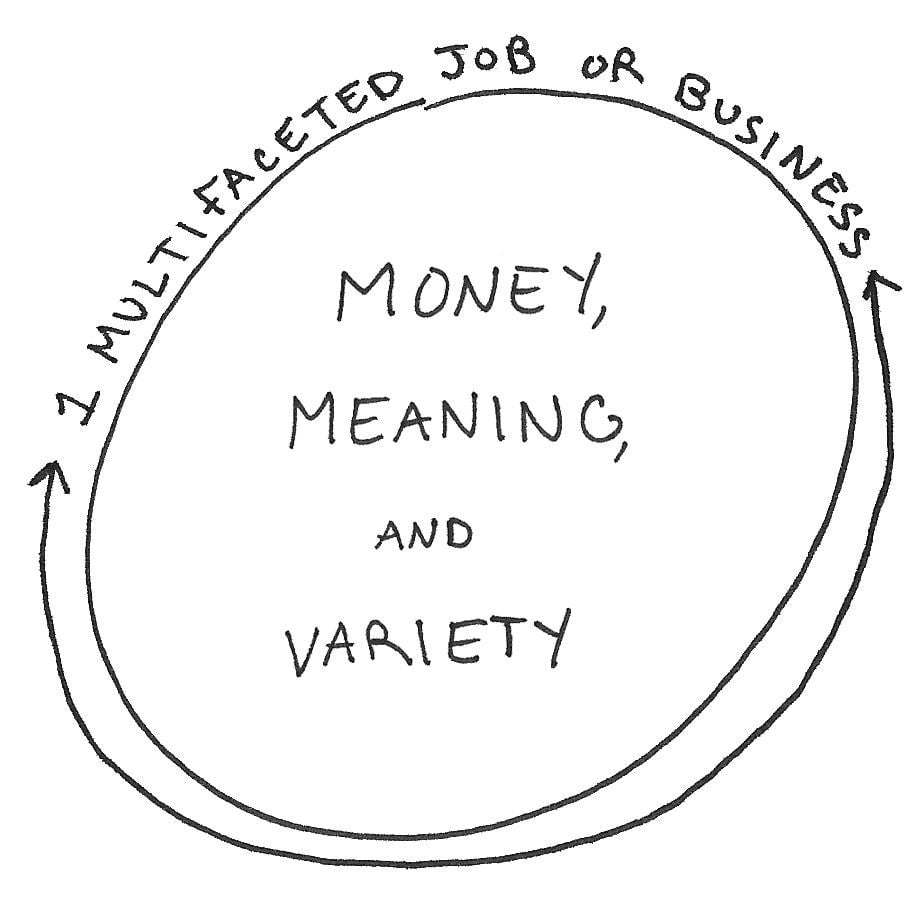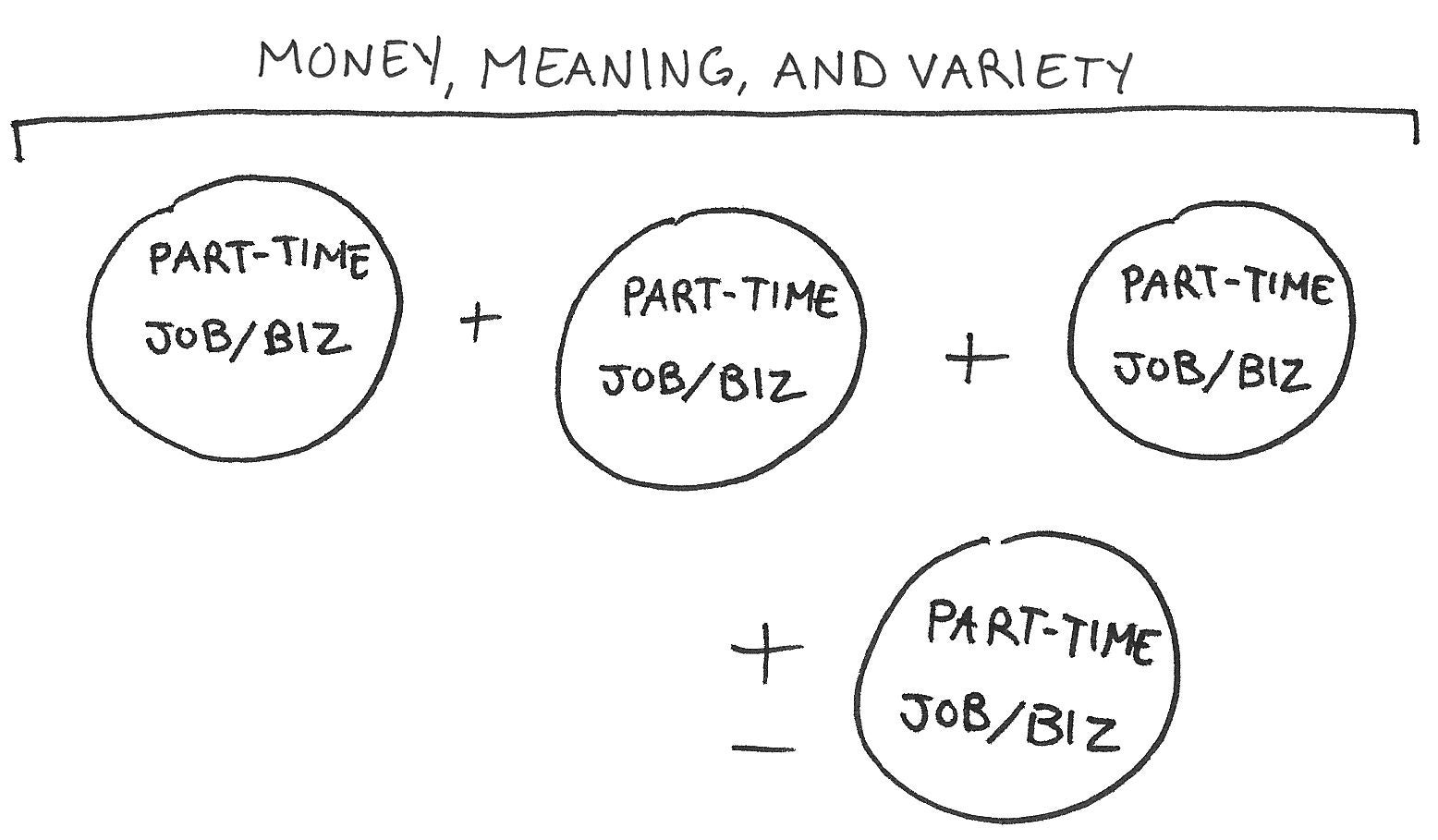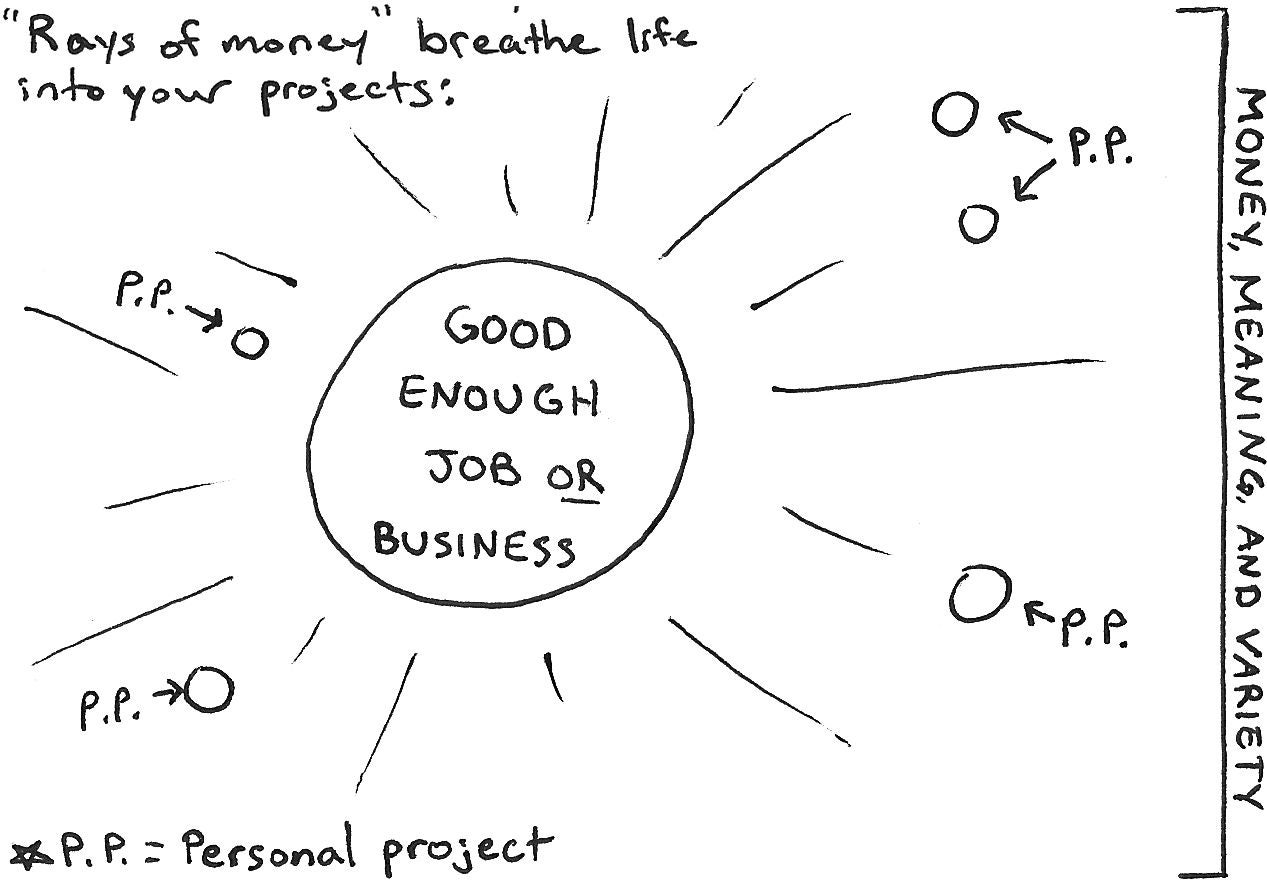The idea of “one true calling” is a romanticized lie
Do you remember being asked as a little kid what you wanted to be when you grew up? How did you feel? When I think back to when I was five or six, I don’t remember my specific answer. But I do remember what happened after I answered: The face of the adult who had asked took on a look of approval and pride. It felt good to declare an identity. The world (well, my little world, at least) approved.


Do you remember being asked as a little kid what you wanted to be when you grew up? How did you feel? When I think back to when I was five or six, I don’t remember my specific answer. But I do remember what happened after I answered: The face of the adult who had asked took on a look of approval and pride. It felt good to declare an identity. The world (well, my little world, at least) approved.
Something happens to many of us as we get older: “What do you want to be when you grow up?” goes from being a fun exercise in daydreams to a more serious, more anxiety-inducing question. We begin to feel the pressure to respond with a practical answer: One with weight and consequences, to which we will be held. We sense the people around us trying to pinpoint the type of person we are becoming, and we want the same kind of approval we were granted as little kids when we declared our desire to become circus clowns or dinosaurs.
We want all of this, but we don’t want to be boxed in or to make the wrong choice. While outside forces prod us to “declare a major,” “home in on our strengths,” and “find a niche,” we mortals are struggling to understand who we are and what kind of significance our lives will have. It’s a mess of external and internal pressures, intertwined with existential and identity confusion. This mess isn’t relegated to adolescence, either. For many of us, it continues throughout our lives.
The myth of the true calling
One reason that “What do you want to be” has the ability to wreak havoc in our hearts and psyches is that it implies the need to be one thing. There’s a good chance that if your five-year-old self rattled off a list of ten different future selves, the adult posing the question would say something like, “Well, which is it? You can’t be all of those!” Certainly, once we reach adolescence, there’s far less tolerance for answers like, “I’m going to be a marine biologist, textile artist, and journalist!”
It’s subtle, but we can translate What do you want to be when you grow up? to You are allowed one identity in this life, so which is it? How terrifying is that? When phrased that way, it’s no wonder the question stresses us out.
The message that we must decide on a single identity is reinforced in many contexts. Mainstream career books and guidance counselors give us tests to help us whittle down our career options to the perfect fit. Colleges and universities ask us to declare a major. Employers sometimes ask applicants to explain ourselves when we possess skills in outside fields, implying we lack focus or ability. We receive ominous warnings from the people in our lives and the media about the dangers of being a quitter, a flake, or a jack-of-all-trades, master of none. A specialized life is portrayed as the only path to success, and it’s highly romanticized in our culture. We’ve all heard of the doctor who always knew she wanted to be a doctor, or the writer who wrote his first novel at the age of ten.
These people are held up as shining examples for the rest of us, and—while people like this certainly exist (no hate intended to the focused few!)—many of us simply don’t fit into their model. Through social cues and conditioning, we learn to believe in the romantic notion of the One True Calling: the idea that we each have one great thing we are meant to do with our life—OUR DESTINY!
What happens if you don’t fit into this framework? Let’s say you’re curious about several subjects, and there are many things you’d like to do with your life. If you’re unable or unwilling to settle on a single career path, you might worry that you don’t have One True Calling like everybody else, and that, therefore, your life lacks purpose.
It doesn’t. In fact, there is a very good reason for your tendency to shift between things, to devour new knowledge and experiences, and to try on new identities.
You are a multipotentialite
Have you been nodding your head along as you read? Good news! You are probably a multipotentialite: someone with many interests and creative pursuits. If this is the first time you’ve encountered the word, it might seem like a mouthful. If you have a hard time with multipotentialite or it doesn’t feel like a good fit for you, there are other options. Here are the most common terms for the kind of person we’re talking about:
- Multipotentialite: someone with many interests and creative pursuits
- Polymath: someone who knows a lot about many different things or a person of encyclopedic learning
- Renaissance Person: a person who is interested in and knows a lot about many things
- Jack-of-All-Trades: a person who can do passable work at various tasks; a handy, versatile person
- Generalist: one whose skills, interests, or habits are varied or unspecialized
- Scanner: someone with intense curiosity about numerous unrelated subjects (coined by Barbara Sher in her great book Refuse to Choose!)
- Puttylike (adj.): able to embody different identities and perform a variety of tasks gracefully
These synonyms have slight differences in meaning. Multipotentialite and Scanner emphasize drive and curiosity, while Polymath and Renaissance Person emphasize accumulated knowledge (and have historical connotations as well—they may evoke names such as Leonardo da Vinci and Benjamin Franklin). Jack-of-All-Trades tends to refer to someone’s skills rather than their knowledge, and Generalist implies someone with broad but shallow knowledge. The differences are subtle. Ultimately, what matters is that whatever word you adopt for yourself feels right. Use the term(s) that resonate most, use no term at all, or invent your own.
There is no single way to be a multipotentialite. Some of us have a dozen projects on the go at once, others prefer to dive into a single subject for months or years, making it our sole focus until we switch to a new area entirely. A multipotentialite’s interests can occur simultaneously (several interests at one time), sequentially (one interest at a time), or anywhere in between.
To figure out your own place on this spectrum, think about your past interests, projects, and jobs. Notice any patterns? Do you tend to be interested in many different topics at once, or do you prefer to focus intently on one thing at a time before moving on to the next one (and then the next)? How many projects do you like to have on your plate at once, and how many is too many? Perhaps your capacity for taking on projects is like a stove: You have four pots on four burners; some are boiling on high while others simmer in the back. Maybe your metaphorical stove is more like the industrial range in a restaurant, with a griddle and an infinite number of projects sizzling away. Alternatively, maybe you have a campfire that produces one glorious blaze at a time.
Most of us actually fall somewhere in the middle of the simultaneous–sequential spectrum, and we often move along it at different points in our life. If you have no idea where you fall, don’t freak out! We’ll figure it out together. Our interests are sometimes fleeting, and they sometimes never leave us. They can also fade, only to reemerge years later. It doesn’t matter how you move through your various interests and passions; all methods of being a multipotentialite are equally valid.
Work model 1: The Group Hug Approach

The Group Hug Approach is having one multifaceted job or business that allows you to wear many hats and shift between several domains at work.
Do you:
- Love multidimensional projects where you get to be involved in many different capacities?
- Want the “thing you do for money” to reflect the entirety of who you are (or close to it)?
- Feel overwhelmed when you have too many disconnected projects?
- Prefer to have a sense of synchronicity in your work so that anytime you’re focusing on one area, that work contributes to a greater whole?
Work model #2: The Slash Approach
The Slash Approach is having two or more part-time jobs and/or businesses that you flit between on a regular basis.
Do you:
- Like alternating frequently between very different subjects?
- Often find yourself fascinated by specialized or niche topics?
- Not care very much about combining your passions in service of a single entity?
- Value freedom and flexibility more than stability?

Work model #3: The Einstein Approach

The Einstein Approach is having one full-time job or business that fully supports you, while leaving you with enough time and energy to pursue your other passions on the side.
Do you:
- Value stability over flexibility?
- Want your paid work to be enjoyable, but don’t feel as though it has to be the be-all and end-all?
- Find joy and meaning when you pursue your many fascinations for fun, as hobbies?
- Want to pursue something that doesn’t usually come with a big paycheck?
Work model #4: The Phoenix Approach
The Phoenix Approach is working in a single industry for several months or years and then shifting gears and starting a new career in a new industry.
Do you:
- Become obsessed with things for fairly long periods of time?
- Find that months or years pass before you feel the itch to move on to a new area?
- Like going deep into particular subjects and often get mistaken for a specialist?
- Not require a ton of variety in your day to be happy?

This is an excerpt from HOW TO BE EVERYTHING: A Guide for Those Who (Still) Don’t Know What They Want to Be When They Grow Up by Emilie Wapnick. Copyright @2017 by Emilie Wapnick, published by HarperOne, an imprint of HarperCollins Publishers.